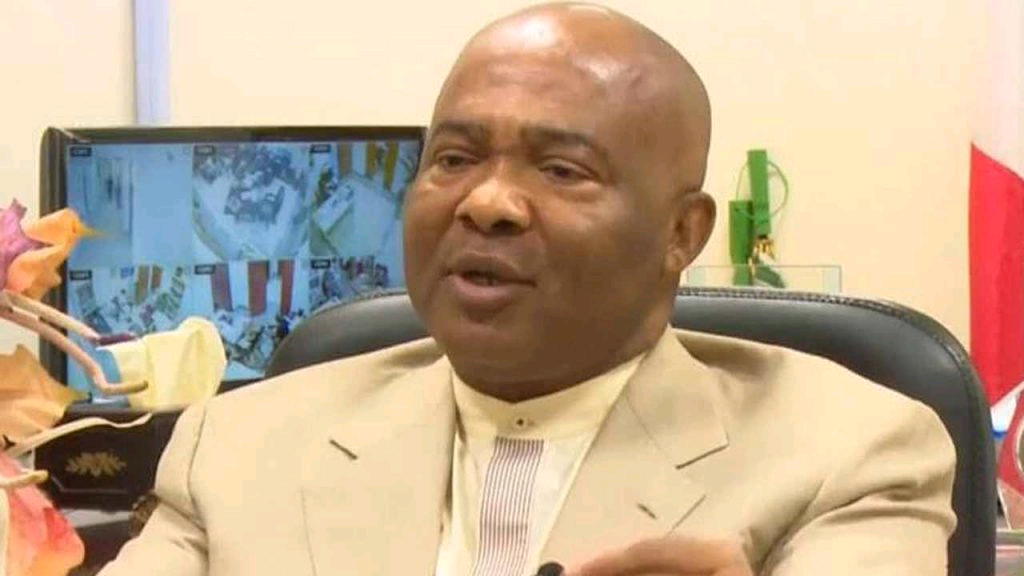The Supreme Court has dismissed the appeals lodged by the Labour Party (LP) and the Peoples Democratic Party (PDP) against the election of Hope Uzodinma as the Governor of Imo State.
The decisions were a significant blow to both Athan Achonu, the LP’s gubernatorial candidate, and Samuel Anyawu of the PDP, who sought to overturn Uzodinma’s victory in the November 11, 2023 election.
In delivering the lead judgment, Justice Mohammed Baba Idris declared that the appellants had failed to substantiate their allegations of electoral malpractice, including claims of overvoting.

The court ruled that the evidence presented by both the LP and PDP candidates was insufficient to invalidate the election results, which had previously been upheld by the Court of Appeal and the Imo State Governorship Election Petition Tribunal.
The unanimous decision by the Supreme Court solidified Uzodinma’s position as the duly elected governor of Imo State.
The judgment reaffirmed the earlier rulings of the lower courts, which had also dismissed the petitions filed by Achonu and Anyawu.
The case centred around allegations of widespread irregularities during the gubernatorial election, including claims of overvoting and other electoral malpractices.
Both the LP and PDP had argued that these alleged infractions were sufficient to warrant the nullification of the election results.
However, the Supreme Court found that the appellants had failed to provide concrete evidence to support their claims.
Justice Idris, in his ruling, emphasised the importance of concrete evidence in electoral disputes.
He noted that the burden of proof lies heavily on the petitioner to substantiate allegations with credible evidence.
In this case, the court concluded that the evidence presented by the LP and PDP was inadequate, leading to the dismissal of the appeals.
The judgment brings to a close a protracted legal battle that had cast a shadow over Uzodinma’s governorship.
With the Supreme Court’s ruling, Uzodinma’s election is now affirmed beyond further legal challenge, allowing him to continue his tenure as the governor of Imo State.
The outcome of the case has significant implications for the political landscape in Imo State, particularly for the LP and PDP, who had invested considerable resources in challenging the election results.
For Uzodinma and his supporters, the ruling is a vindication of the electoral process and a confirmation of their mandate to lead the state.
Political analysts have noted that the Supreme Court’s decision underscores the judiciary’s role in upholding the integrity of the electoral process.
The ruling is likely to be seen as a precedent in future electoral disputes, particularly in cases where allegations of malpractice are not backed by substantial evidence.
In the wake of the judgment, there is expected to be a renewed focus on governance in Imo State, with Uzodinma now able to govern without the looming threat of legal challenges.
For the opposition parties, the ruling represents a setback, but it also serves as a reminder of the high evidentiary standards required in election petitions.
The Supreme Court’s dismissal of the appeals by the LP and PDP reinforces the finality of Uzodinma’s election, drawing a line under the controversy that has surrounded the governorship of Imo State.
As the state moves forward, attention will likely shift to the administration’s policies and their impact on the people of Imo State.
In conclusion, the Supreme Court’s ruling in favour of Governor Hope Uzodinma marks a critical moment in the political trajectory of Imo State.
The decision not only upholds the election result but also reaffirms the principles of justice and fairness in the electoral process, setting a high bar for future challenges.
Support InfoStride News' Credible Journalism: Only credible journalism can guarantee a fair, accountable and transparent society, including democracy and government. It involves a lot of efforts and money. We need your support. Click here to Donate
